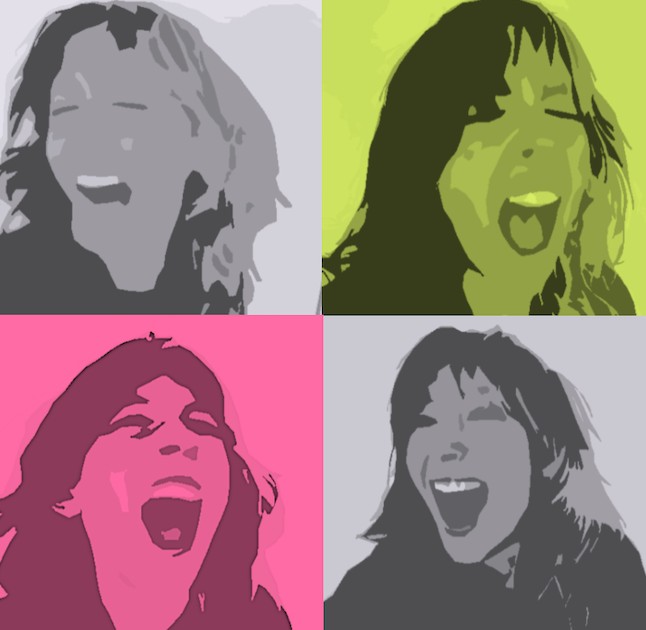We recently connected with Hannah Rice and have shared our conversation below.
Hi Hannah , we’re so appreciative of you taking the time to share your nuggets of wisdom with our community. One of the topics we think is most important for folks looking to level up their lives is building up their self-confidence and self-esteem. Can you share how you developed your confidence?
I am still working on it. When we talk about confidence and self-esteem, I think we often tie it to “success.” “Once I win x competition, I will be a ‘real musician,’ and this will give me the confidence and validation I need!” or “Once I sing at x venue, I will no longer question if I’m a good singer.” We believe that working toward and achieving our goals will give us confidence in what we do. While winning awards and competitions can certainly be helpful self-esteem boosts, they are not what I center my focus on when I am experiencing self-doubt. Instead, I have learned to focus on why I create art. This is where I have found real confidence: confidence that does not waiver because of a rejection letter or someone’s blatant dislike of your work. It may sound obvious, but I think that one of the most important things we can do as artists is consistently ask ourselves the question: why do I do this thing? Not long ago, I would have answered the question with “I just love to sing!” or “I love to write music!” but loving music isn’t why we feel a deep need to create and produce art ourselves. There is something deeper, and THAT is where I have found (and am continuing to find) my confidence.
Not long ago, someone said to me “Everyone’s soul has one thing that it desperately wants to communicate, and it will manifest in every single thing they do.” Of course, for me, this begged the question, “What does my soul need to communicate?” I know it sounds rather dramatic, and, of course, there is no one answer, but seeking the answer to this question has propelled me to discover my need to make NOISE! I have always been attracted to opera and heavy metal, both of which I had analyzed from a theoretical perspective, but I had never looked at it from this angle – that both things require me to make some noise. Maybe my soul needs to scream. Maybe my soul is angry. Maybe my soul just loves and appreciates the cathartic release of raw sound. Whatever it may be, it all comes from this artistic need to communicate this thing, and consistently asking myself this question has grounded me in a way that I have not felt before as an artist. I guess confidence really is mental for me.
When you understand where your soul is coming from and why you need to be doing what you’re doing, it helps block out the nonsense. Whenever I am feeling self-conscious or experiencing imposter syndrome, this is the question I dive back into. THIS is why I’m doing the thing. Not because I should be a better conductor than him to be a good composer or have a better ear than she does to impress him. Authenticity breeds confidence. When you are writing or creating or doing anything at all from your soul, nobody can tell you it’s not good enough. I’m not trying to be good enough for anyone or anything with my art anymore. I’m not trying to make music with the hope that a particular audience will like it. I’m trying to communicate this thing my soul needs to say. I am a raw and authentic me in my art, and I have deep confidence in that.
Thanks, so before we move on maybe you can share a bit more about yourself?
Born to two opera singers, my first memories consisted of sitting in the aisles of opera houses during my parents’ rehearsals. This is where I first fell in love with music. This love led me to attend Louisiana State University to receive my bachelor’s degree in both vocal performance and composition. I thought that my time at LSU would give me a clearer picture of which side of music I would want to pursue in my master’s studies: voice or composition. However, my experience at LSU only led me to grow in my passion for both, so I am currently at the University of Southern California in Los Angeles pursuing a double master’s degree in composition and vocal arts.
As I have settled into my life in Los Angeles, I have found that one of my favorite things about living here is the community of artists. There is meaningful collaborative creation happening everywhere, and it is inspiring! The collaborative nature of this city has reminded me how important improvising with other musicians and artists is, and I have become increasingly interested in making this a consistent part of my practice, forcing myself to let go of the perfectionistic artistic inclinations that are often over-emphasized in classical training. Making and seeing collaborative art in this way has led me to question my artistic identity and what I want my art to do, and I continue to have rich conversations with other artists and colleagues about these topics.
While experiences like these have been essential to forming my artistic identity, I, unfortunately, cannot sit around and discuss art and life’s purpose ALL of the time. So, I also work as a freelance singer, composer, and teacher in addition to my full-time academic course load. While freelance work can sometimes be unreliable, one of the best things about the work is the travel that accompanies it. Most recently, I was commissioned by Vox Anima London to be a part of their International Women’ Day Concert. Upon receiving the piece, they offered to fly me out to be a part of the performance in early March at Cadogan Hall. Being a part of this performance was one of the most fulfilling experiences I’ve had as an artist, and it was such a privilege to get to share my work in another country! While this was very exciting, it is not a common occurrence in my musical life, and you will more often find me singing as a chorister at St. James in the City or teaching my wonderful private voice and composition students.
Currently, I am working towards a fully staged performance of Kaija Saariaho’s oratorio, La Passion of Simone, which I will be performing in as the soprano soloist on April 18-21 with USC Opera. While learning this challenging piece, I am also working on composing two brand new pieces commissioned by the Aspen Music Festival as a part of their Composition Fellowship through the Susan and Ford Schumann Center for Composition Studies.
For inquiries about lessons with Hannah or to explore a possible commission of a new work, feel free to reach out to her at [email protected] or https://www.hannahricemusic.com/.
Looking back, what do you think were the three qualities, skills, or areas of knowledge that were most impactful in your journey? What advice do you have for folks who are early in their journey in terms of how they can best develop or improve on these?
1. Learning is NON-linear.
I first heard this phrase last year in my vocology teaching practicum, led by the wonderful Professor Lynn Helding at USC. During our unit on cognition and motor learning skills, Professor Helding discussed how we often think of the brain slowly learning new information in a linear upward line; we take in information, and we know it. However, this is far from true. The brain has to take in new information multiple times before it truly learns it. In addition, our colloquial idea of “learning” does not take into account the process of unlearning, which takes even more rewiring of our motor neurons. I am far from a cognitive scientist, but this phrase has stayed with me each day on my artistic journey. We are not going to just keep getting better and better with each performance or composition or artistic piece. Sometimes we have to get worse first. Sometimes getting worse is part of the unlearning process. This was huge in re-framing my self-criticism in the practice room. Rather than saying to myself “How are you sounding worse today than yesterday?!” I am able to say “You must be learning something new!” Of course, it doesn’t make the process any less frustrating, but this has been an important phrase that I remind myself and my students of often.
2. Remind yourself that the stakes are low.
A few years ago, I was ranting to a friend and colleague about how stressed and overwhelmed I was about all of the things I had to do. I was going on about the list of things when she looked at me and said, “Hannah, the stakes are low.” And she was right. The stakes really are low. Sometimes it is hard to remember that when we really want an artistic opportunity or want to perform well or when a “big success” feels within our grasp. But that’s not why I’m doing this. I am creating art to experience life. To connect with other artists and people in a meaningful way. To deepen my understanding of myself and the human experience. And all I can do is remind myself of those things and sing and create. That is what I aspire to do in an audition, on stage, in a masterclass, anywhere and everywhere. It is not that the stakes are low in that I do not care about what I do; I care deeply. But the stakes for “impressing the hot shot judges” are low. The stakes for “giving a stellar performance” are low. The stakes for “singing the aria perfectly” are low. The stakes are only high for creating authentic art, and that is something I know I can do every time.
3. Don’t be afraid to absolutely SUCK at things.
I am naturally a very perfectionistic person, and putting myself in situations where I am bad at things is uncomfortable and difficult for me. However, every time I do it, I learn new things about myself and grow immensely. In fact, improvising in a musical context has always been scary to me, and it is something I am still not great at. However, it has unlocked so many important things for me artistically in terms of letting go of perfection and control. I firmly believe that challenging yourself to do things that you are uncomfortable with is paramount to growing and learning; if it scares you, do it! Like I said before, the stakes are low. Why not try it? I guarantee you will learn and grow every time you do.
What has been your biggest area of growth or improvement in the past 12 months?
In our capitalistic society, we are very product focused, and in music school, a lot of what we are taught is how to “market” ourselves; how to push ourselves as a “product.” While this is a valuable and necessary skill to be able to freelance as an artist, this mindset became very toxic for me. At the start of my master’s degree, I went through a deep period of questioning and uncertainty that led to a heavy decline in the amount of music I was composing and auditions I was taking. This caused utter panic. How could I make a career as an artist if I wasn’t creating? And furthermore, what do I do when I hate what I’m creating? It took a long time to work through these questions before I was able to write a piece of music that felt like me, and since that time, I have been writing music at a much slower rate than I used to. However, I am a much happier and healthier artist since I have slowed down, and this experience taught me how important it is to focus on process over product. If I hadn’t allowed myself the process of writing LOTS of bad music and producing far less music, I don’t know that I ever would’ve produced a product I was happy with. Staying process focused can be challenging, and it often feels like I am “behind” or not “working hard enough.” But slowing down and focusing on my creative process has been integral to creating art that is authentic and meaningful to me.
Contact Info:
- Website: https://www.hannahricemusic.com/
- Instagram: @hannah_eats_rice
- Youtube: https://youtube.com/@hannah_eats_rice?si=zUN9O3SQdWosWPZS
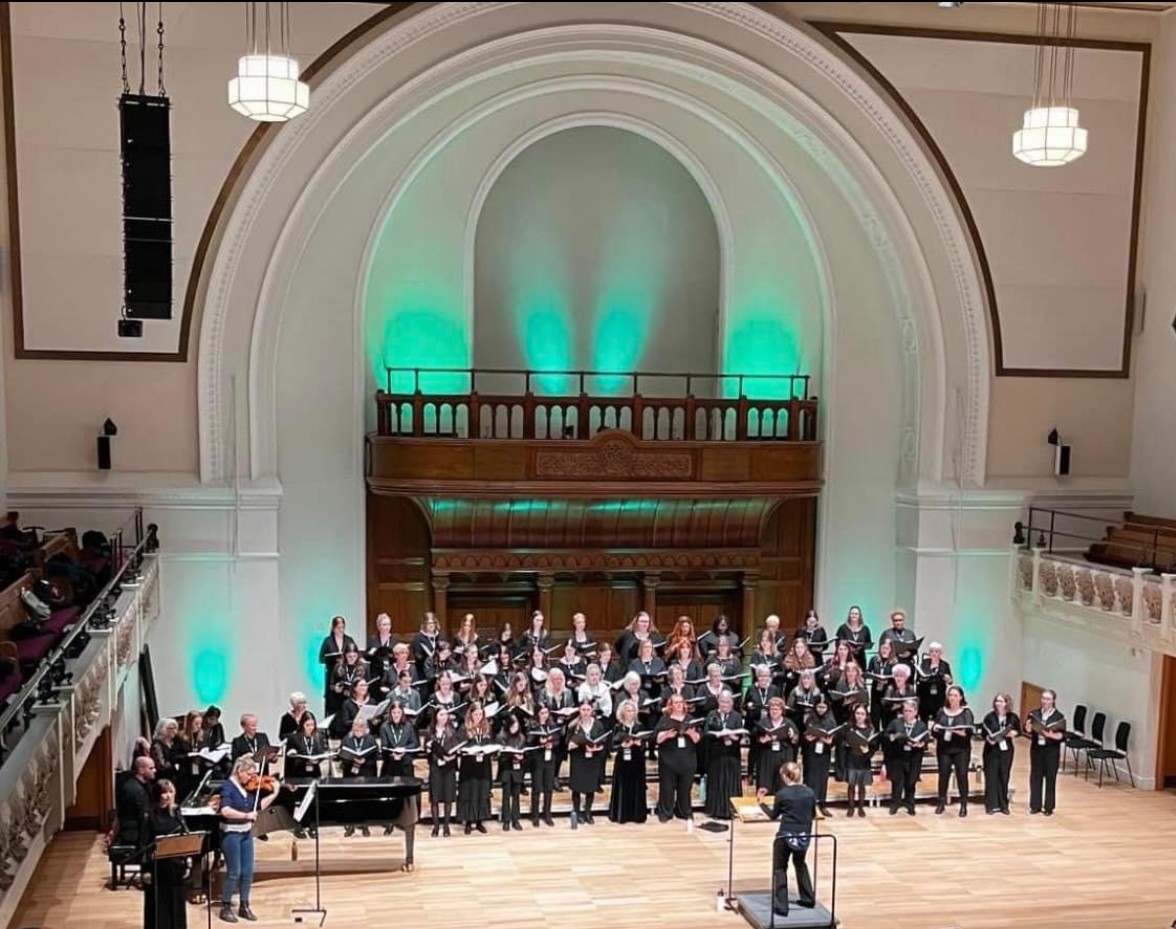
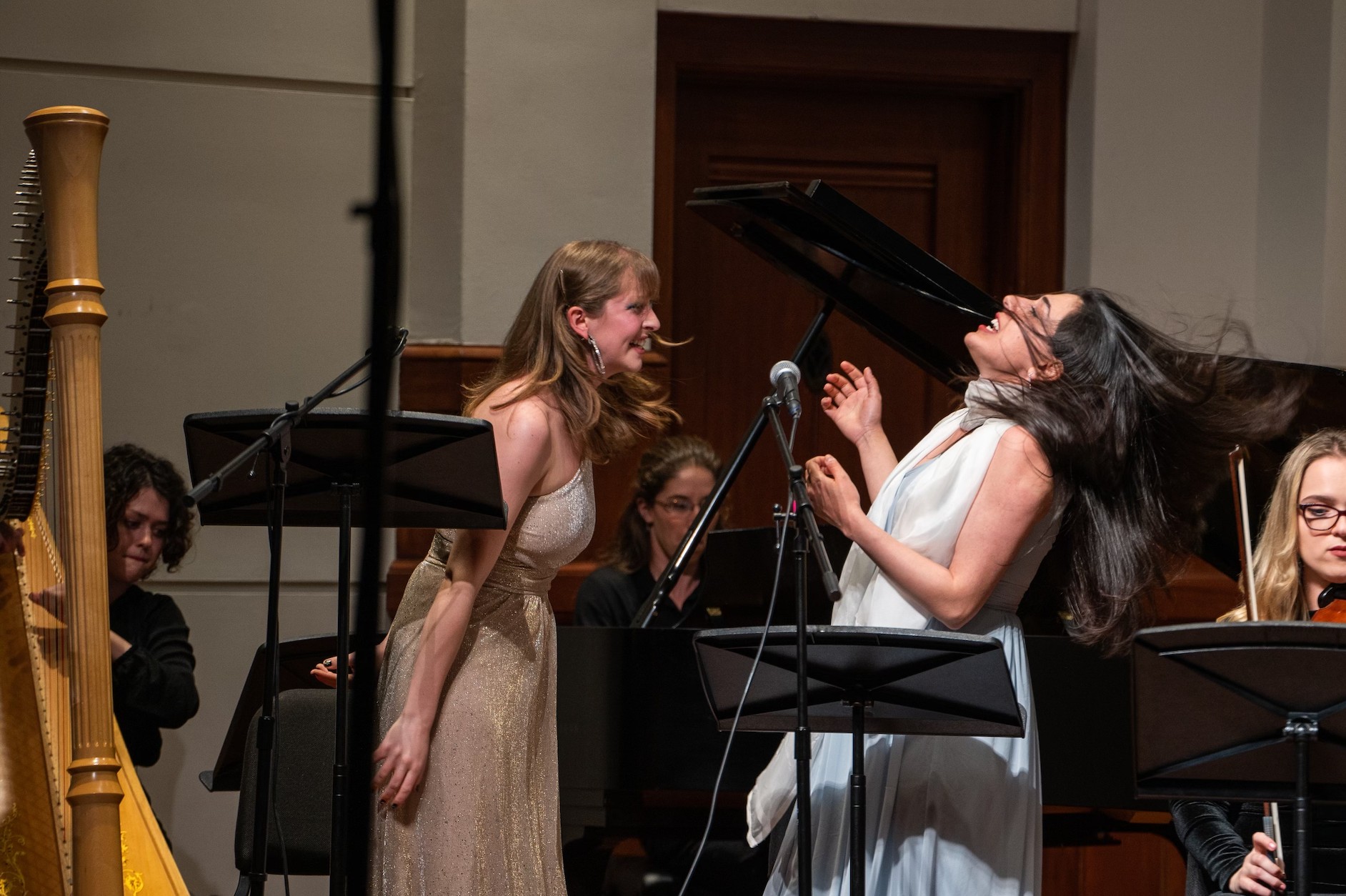

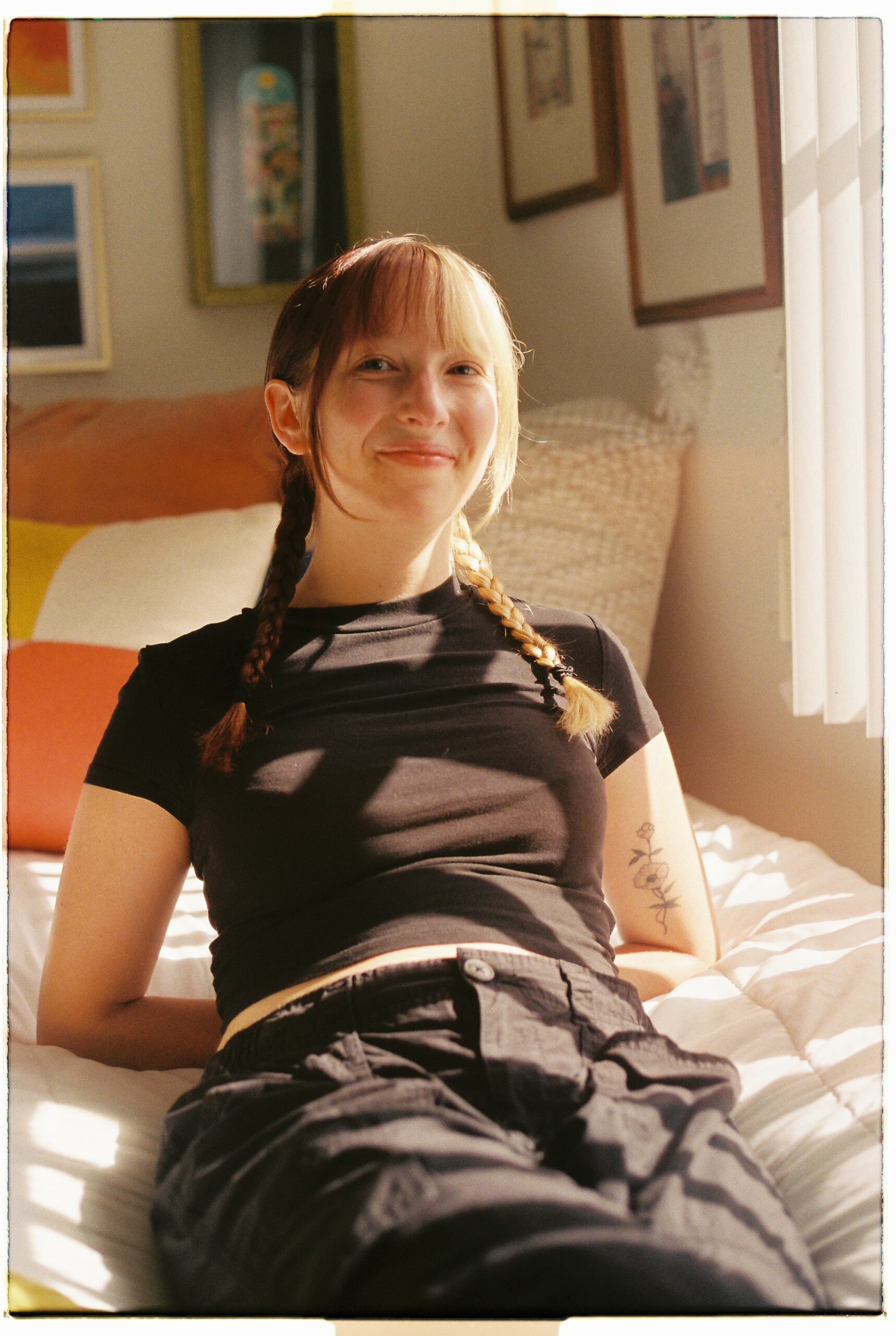
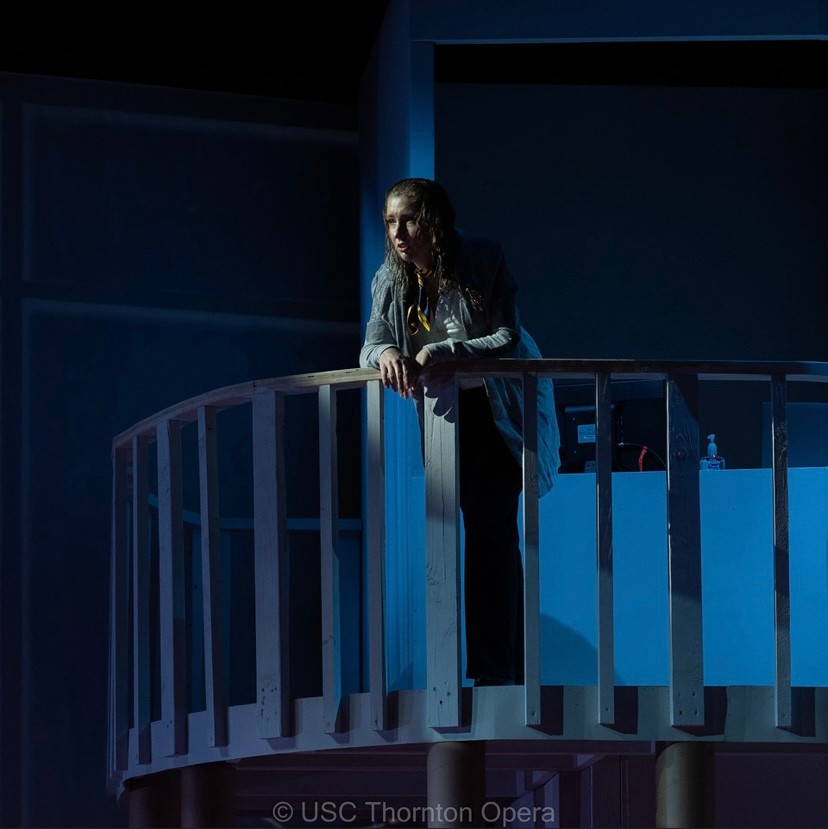
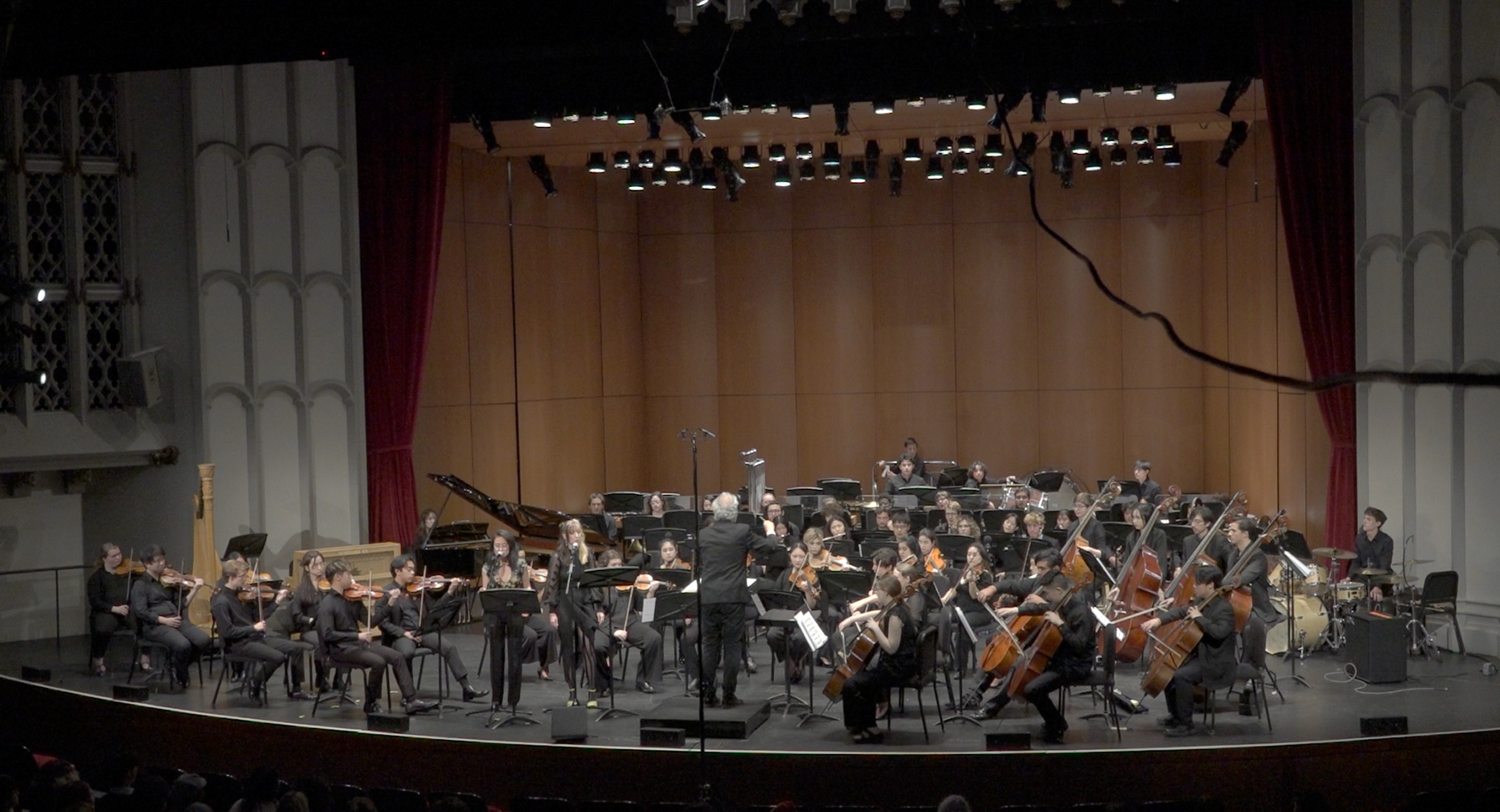
Image Credits
Quinn Dymalski USC Opera

